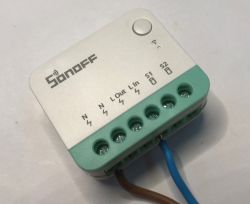Hello
I am wondering about the issue of securing access to control IoT systems with openbeken on board. Has anyone already discussed this topic?
I know this is a relatively young project, and my big nods to all who are developing this code.
The question that concerns me is - how will the security access to the device itself ultimately be resolved.
In the interface itself, I don't see any settings for local access restrictions. The http can be accessed without anything from the LAN, both to the web interface and to commands over the API. Including commands that can reset/change settings, rendering the device unusable.
So for the moment probably the only way to secure it is to put such devices in an isolated subnet. Only then it gives us an all-or-nothing restriction. Well, and then you have to deliberately fiddle with the WIFI AP settings.
Of course, control selectivity can then be achieved via an application layer above, e.g. homeassistant. At least, this is how it seems to me.
If I would like to release MQTT traffic from openbeken over a public network, to my own remote server, then probably only via a vpn tunnel, e.g. from a local router.
Is it possible to disable in openbeken the log dump on port tcp 9000? I understand that in the development version this is useful. But production-wise I would still prefer to be able to disable it. There it even shows the wifi password. Maybe it is worth adding a cfg option 'do not show log'.
I am wondering about the issue of securing access to control IoT systems with openbeken on board. Has anyone already discussed this topic?
I know this is a relatively young project, and my big nods to all who are developing this code.
The question that concerns me is - how will the security access to the device itself ultimately be resolved.
In the interface itself, I don't see any settings for local access restrictions. The http can be accessed without anything from the LAN, both to the web interface and to commands over the API. Including commands that can reset/change settings, rendering the device unusable.
So for the moment probably the only way to secure it is to put such devices in an isolated subnet. Only then it gives us an all-or-nothing restriction. Well, and then you have to deliberately fiddle with the WIFI AP settings.
Of course, control selectivity can then be achieved via an application layer above, e.g. homeassistant. At least, this is how it seems to me.
If I would like to release MQTT traffic from openbeken over a public network, to my own remote server, then probably only via a vpn tunnel, e.g. from a local router.
Is it possible to disable in openbeken the log dump on port tcp 9000? I understand that in the development version this is useful. But production-wise I would still prefer to be able to disable it. There it even shows the wifi password. Maybe it is worth adding a cfg option 'do not show log'.





